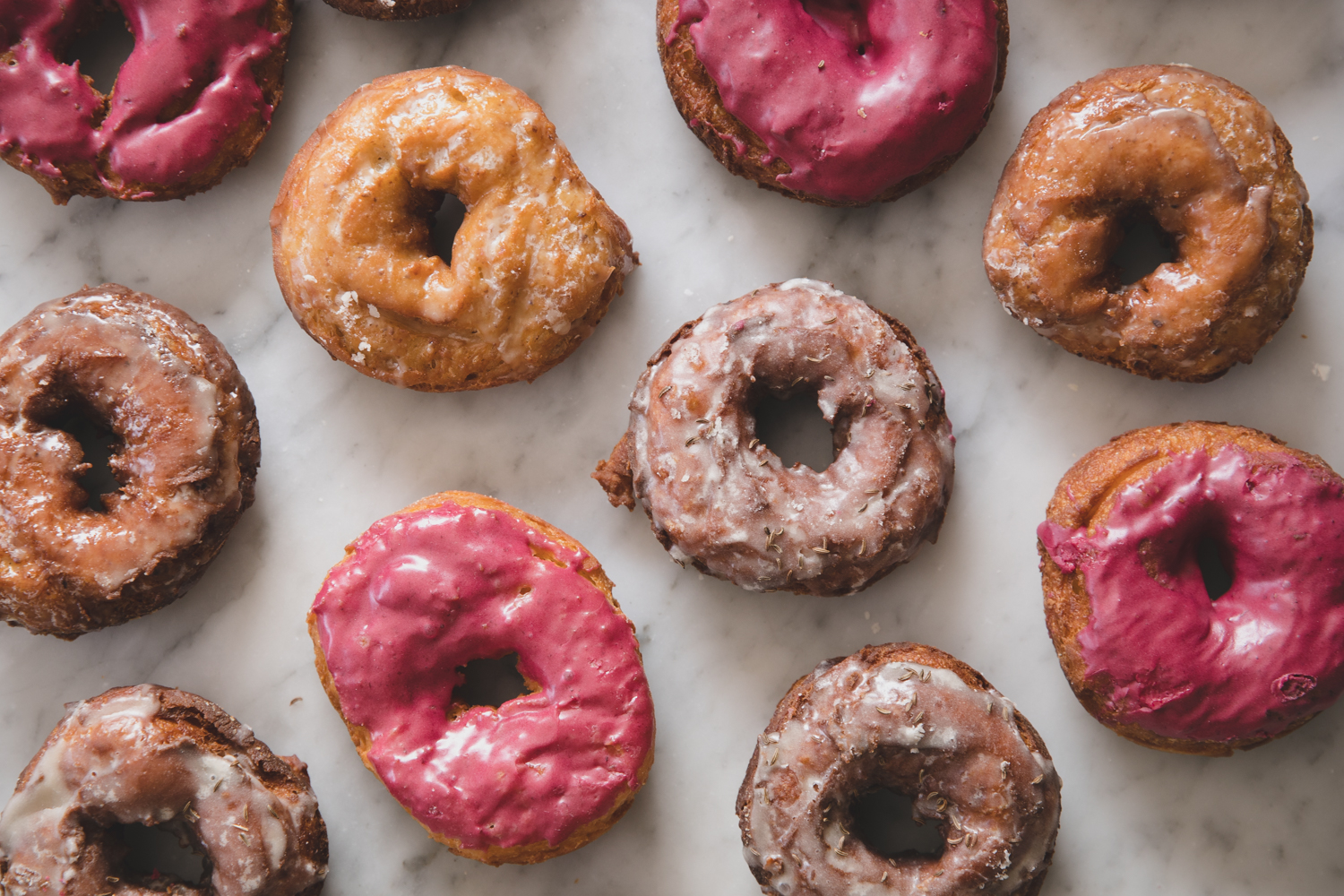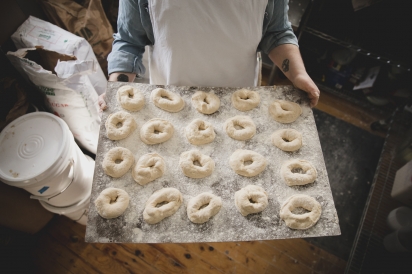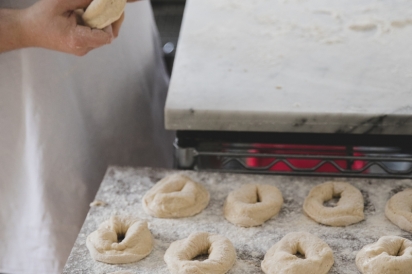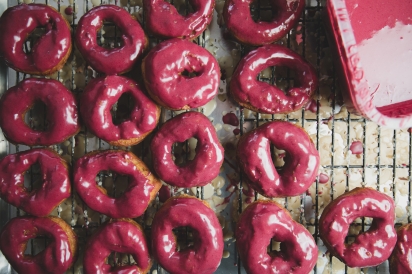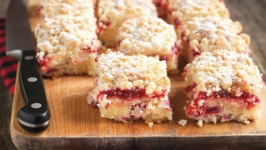Miss Weinerz Donuts
Ren Weiners is going to save the world with donuts. It’s easy to underestimate those plump, homegrown treats, adorned with the playful (purple glaze and homemade sprinkles) to the adventurous (tulsi sugar, a splash of seeds), but despite the beautiful pastry bounty, it’s not the donuts themselves that may do the saving—it’s the whole delicious donut circle.
Miss Weinerz Donuts began as a pop-up project in the fall of 2014 with the goal of feeding people good food—that means the most nutritious, sustainable, a ordable and delicious product for the community. Donuts became the medium, the common language in an ongoing discussion of food waste and sustainability, and how food can be good for body and soul. It doesn’t hurt that donuts make people happy.
Weiners began working in the food world at the age of 14 and continued to keep herself employed through the recession by feeding people. However, she quickly saw how much food was going to waste in the pro- fessional setting. Weiners became a common face among the throngs of protesters battling major food issues in Philadelphia, but as she says, “You can only hold a picket sign for so long before you have to turn around and try to gure it out.”
While a small, sustainable business was always her dream, she couldn’t put her ideas into practice until illness prevented her from working long restaurant hours. And what would despair some became a challenge for RenWeiners. With the support of friends, she began baking her own brand, using whatever local ingredients she had, including wild urban grapes and her neighbor’s pears, and selling her baked goods at coffee shops.
The response was immediate—people felt good after eating her donuts, and they loved the unique and seasonal flavors. So, Weiners continued experimenting—she dropped her popular lemon curd donut, seeking instead a tart local flavor, like elderberries or chokecherries, and reintroduced a traditional New England taste in a friendly way. She incorporated things like beets, for their natural sweetness and color and an amazing texture. And baking on a small scale out of her kitchen allowed her to research the ingredients she used, to keep her product ever evolving toward that vision. “I just knew I wanted to make good food, and that became more of an existential question than anything else, which has led to this constant evolution.”
Truthfully, the answer to that question lies in a lot of hard work and forethought. “I get a little bit of street credit from friends who milk cows on farms, because I get up earlier than they do,” Weiners admits. She spends much of her time gathering and processing food—freezing, dehydrating, cooking down into jams—so that on Thursday nights, she can take stock and choose avors based on what’s available for Friday’s baking, from flowers steeped in cream to whatever berries are available that week. And if the berries aren’t as sweet as last year’s, Weiners adapts.
Whatever tastes good is incorporated into her 48-hour fermented sourdough base, which makes the donuts easier to digest for some and gives them a slightly tangy local avor from the natural yeast. Keeping it close to home also keeps Weiners on her toes as she produces new “nuts” every week for her customers to try. While donut fans can always expect something different, they know it’ll be something good—“there’s always a sugar [donut], a more salty one, a berry, a jam and a cream. Those are the five different flavors that I play with, and that gives me a base for what’s locally available or preserved.”
In her great experiment, Weiners pursues the ongoing question of “closing the circle,” or bolstering those connections that make her community’s food system stronger. Weiners communicates with local businesses to share resources and make use of products that would otherwise go to waste. An example is the flaxseed from Butterworks Farm, which serves as a row cover for Jack Lazor’s crop rotations and provides some tasty, Vermont-grown ciber for the donuts. Weiners’s “Brewnuts” are a result of working with Zero Gravity and Citizen Cider, incorporating their spent grains into her own product.
But closing the circle is also a question of delivery—Weiners sells at Winooski coffee shops and the Sunday farmers’ market. With the help of Old Spokes Home, she recently refurbished a bicycle trailer with a pastry case, in order to peddle (get it?) her donuts about town. And while food sustainability is not always a comfortable topic for people, donuts make it all a bit easier to digest.
In the future, Weiners is hoping to expand her operation to a collective inspired by maker-spaces, in order to experiment on a larger scale. “The idea is that by putting multiple small-scale productions under the same roof, we’re all saving.” Such a cooperative would allow businesses to share distribution systems, combine resources to spend on eco-friendly upgrades like solar panels, and would foster continuing collaboration to keep closing the circle while creating jobs that are good for the community.
If the craving strikes for delicious donuts with local heart, you can best nd them by going to the website at MissWeinerz.com or by following her Instagram feed (@MissWeinerz) for her avors of the week, education on food issues and some really beautiful donuts. And when it comes to closing the circle, #donutgiveup.
Kathryn deBros is a writer, teacher, adventurer and a reckless cook based in southern Vermont. A native to the state, she has a deep respect for the agricultural tradition and the creative food community that has developed around it. She is very lucky to have a husband who will eat anything.


